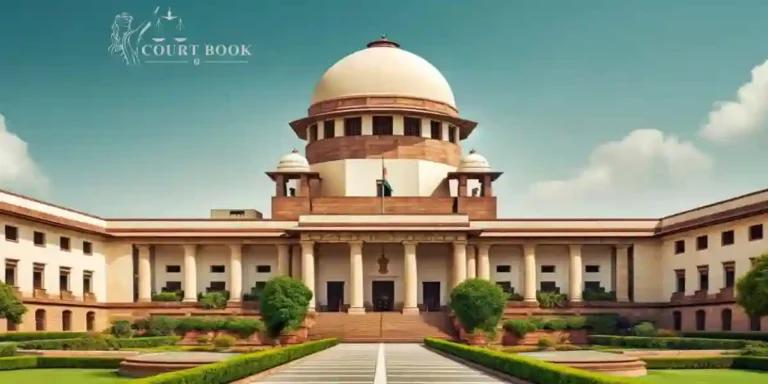The Supreme Court has strongly criticized a Deputy Collector from Andhra Pradesh for disobeying High Court orders and demolishing slum dwellings in Guntur district. The officer, who was earlier found guilty of contempt of court, refused to accept a demotion offered by the Court as a lenient alternative to jail.
A bench of Justices BR Gavai and AG Masih was hearing a petition challenging the High Court’s order that had sentenced the Deputy Collector to two months of simple imprisonment. Despite the opportunity given by the Supreme Court to avoid jail by accepting a demotion to the post of Deputy Tahsildar, the officer declined.
Read also: Supreme Court Directs SCBA Elections on May 20; Reserves Secretary Post & 1/3rd EC Seats for Women
"We wanted to save his career. But if he does not want, we can't help. This shows what attitude he must have had about orders of HC," remarked Justice Gavai.
Senior Advocate Devashish Bharuka, representing the officer, informed the Court that the petitioner was unwilling to accept the demotion. The Court, displeased with this stance, warned of serious consequences.
"Thinking of your children, we were trying to save you from going to jail. But if you want to go, go. Stay there for 2 months. Your job will also go," the bench stated.
Justice Gavai expressed disappointment over the officer's conduct and noted how the slum demolition was carried out using a force of 80 policemen.
Read also: CLAT-UG 2025: Supreme Court to Hear Fresh Plea Against Delhi HC Judgment on Merit List Revision
"Jab 80 police wale leke logo ke ghar giraye tab Bhagwan ki yaad nahi aayi apko?" the judge questioned the officer directly in court.
Despite the Court's repeated efforts to persuade him, the officer remained firm in his refusal, prompting the Court to say:
"We will pass such stringent observations against him that no employer will dare to employ him."
The officer currently serves as the Director of Protocol. The bench noted that his behavior suggested he considered himself beyond the reach of law due to his position.
Earlier, the Supreme Court had shown leniency by issuing notice instead of ordering imprisonment. However, it warned that he might still need to serve jail time, pay compensation to victims, and accept a demotion, especially given that his actions had displaced several poor families.
Background of the Case
The case originated when slum dwellers in Guntur approached the Andhra Pradesh High Court in 2013, seeking house site pattas. The Court had directed the Tahsildar not to disturb their possession until their eligibility was assessed. Despite this, huts were demolished on two separate dates—06.12.2013 and 08.01.2014—with the help of 88 policemen.
Read also: Supreme Court Orders Maharashtra Local Body Elections With OBC Reservation As Per Pre-Banthia Rules
The High Court found the Tahsildar guilty of deliberately disobeying its orders and sentenced him to two months in jail along with a fine of ₹2,000. His appeals were rejected by the Division Bench, which found his claims about overnight encroachments unconvincing.
During the Supreme Court hearing, Justice Gavai also questioned the destruction of homes and highlighted the hardship caused to the poor.
"He has thrown people out of their houses. We don't want to be like him," the judge said before adjourning the matter.
Justice KV Viswanathan also raised concerns about the illegal demolitions and asked about the condition of the victims.
Even though one petitioner was later found to have been relocated under a government scheme, the Court remained firm that the demolition violated earlier High Court directions.
Before concluding the hearing, the Court granted more time on the request of Senior Advocate Bharuka to convince the petitioner. However, the Court made it clear that it would not tolerate disrespect towards judicial orders.
"We can't permit orders of our HCs to be treated in such a contemptuous manner. We won't let go of this without punishment," stated Justice Gavai.
The matter has now been adjourned to Friday, with the Court indicating that unless the officer changes his stance, both his job and freedom could be at stake.
Case Title: TATA MOHAN RAO Versus S. VENKATESWARLU AND ORS., SLP(C) No. 10056-10057/2025















